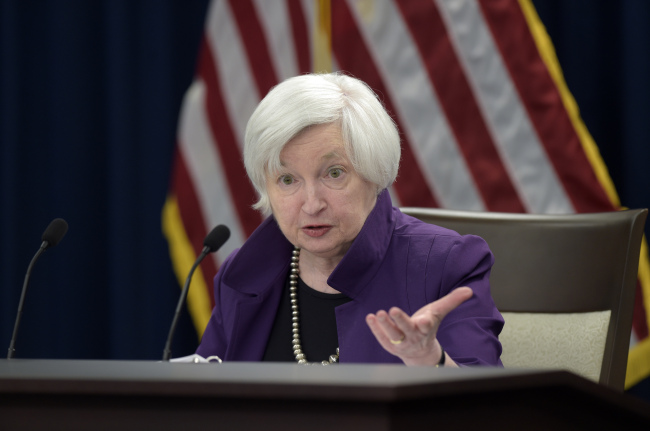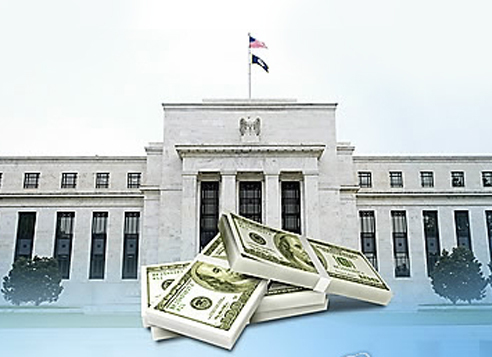The US Federal Reserve’s interest rate hike is likely to worsen South Korea’s rising household debt problem, dampening domestic demand and possibly hurting exports to emerging markets, experts said Thursday.
The Fed raised the key rate by 0.25 percentage point to the 1-1.25 percent range Wednesday, its second hike this year, which was widely expected in the market.
 |
US Federal Reserve Chair Janet Yellen speaks in Washington on Wednesday. (AP-Yonhap) |
Along with Bank of Korea Gov. Lee Ju-yeol’s recent hint at monetary tightening, the Fed’s move raises concerns that higher market interest rates will weigh on Korean households, whose disposable income will be reduced due to higher repayments for their borrowing.
Asia’s fourth-largest economy has been bogged down by high rising household debt, which hit 1,359.6 trillion won as of the end of March. The ratio of household debt to gross domestic product in Korea rose to 92.8 percent as of March, the third highest among 43 countries monitored by the Bank for International Settlements.
“Korea’s household debt has continued to rise, with the economy suffering a downturn for a long time. The recent growth in credit loans highlights that Koreans’ disposable income has barely increased,” Sung Tae-yoon, an economics professor at Yonsei University, told The Korea Herald.
“The US rate hike is likely to sap Korea’s private consumption and domestic demand further. The financial regulator should tighten lending rules such as the debt-to-income ratio.”
The Fed’s rate hike could also have a negative impact on exporters to emerging markets, as higher interest rates in the US usually prompt global investors to move their funds from emerging markets, including China, to the US, observers said.
Another concern is the possibility of a reversed interest rate gap between the US and Korea. If the Fed raises its rate again, possibly in September, the Fed’s key rate will be higher than the BOK’s key rate of 1.25 percent. In this situation, the reversed rate gap might prompt foreign investors to pull their funds from Korea and move to higher-yielding assets in the US.
 |
(Yonhap) |
However, Finance Minister Kim Dong-yeon brushed off such concerns, saying the impact of the Fed’s rate increase on the Korean economy will be limited.
“The US interest rate hike was already expected both by policymakers and the market,” Kim told reporters at a visit to a local IT firm in Seoul.
“We’re preparing various policy efforts to manage household debt. The government will announce comprehensive measures by the end of August.”
Park Seong-woo, an analyst at NH Futures, said the household debt problem will make it difficult for the BOK to raise its rate this year, despite Gov. Lee’s recent hint at monetary tightening.
“Even if the BOK raises this year’s growth forecast from 2.6 percent, consumption is still sluggish. Korea’s core inflation is still too low at 1.4-1.5 percent, which enables the BOK to have some room to hold the rate,” Park said.
The BOK’s monetary policy committee will hold its next rate-setting meeting on July 13.
By Kim Yoon-mi (
yoonmi@heraldcorp.com)









